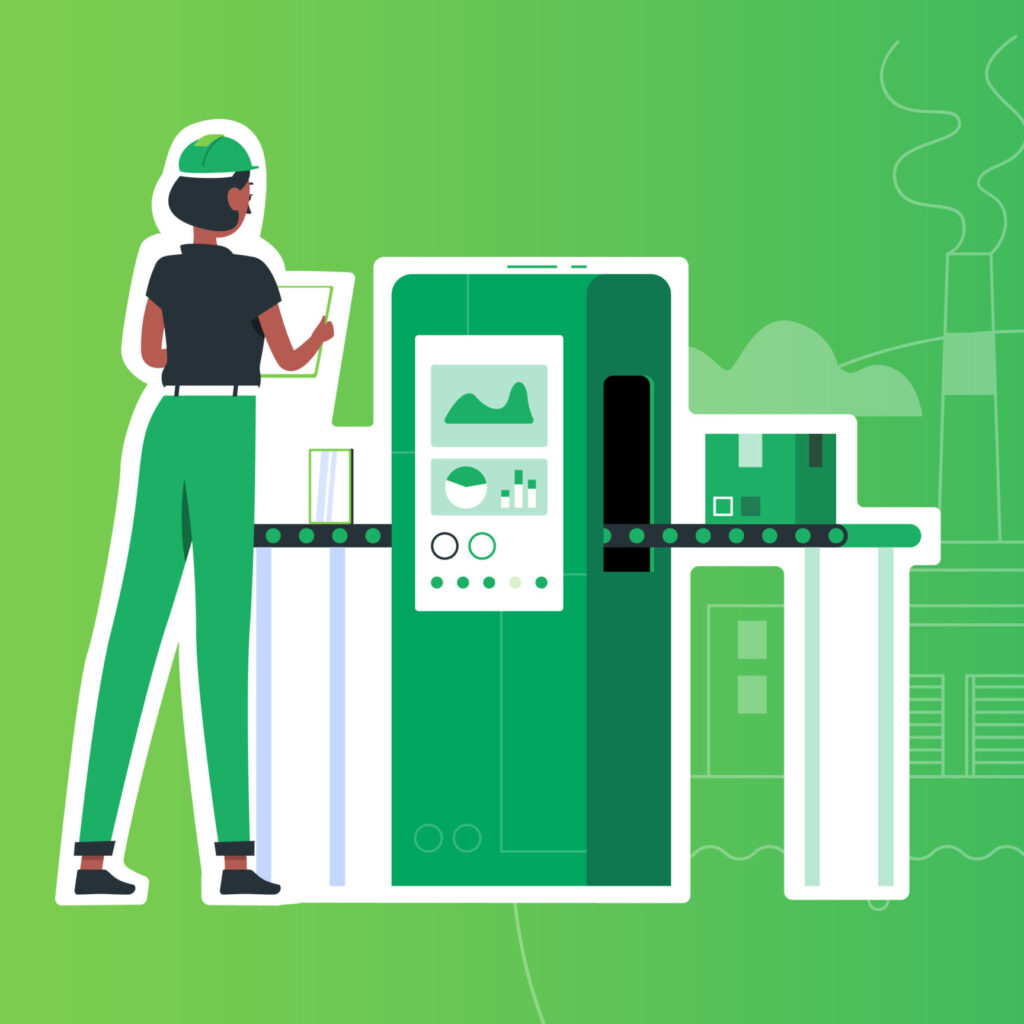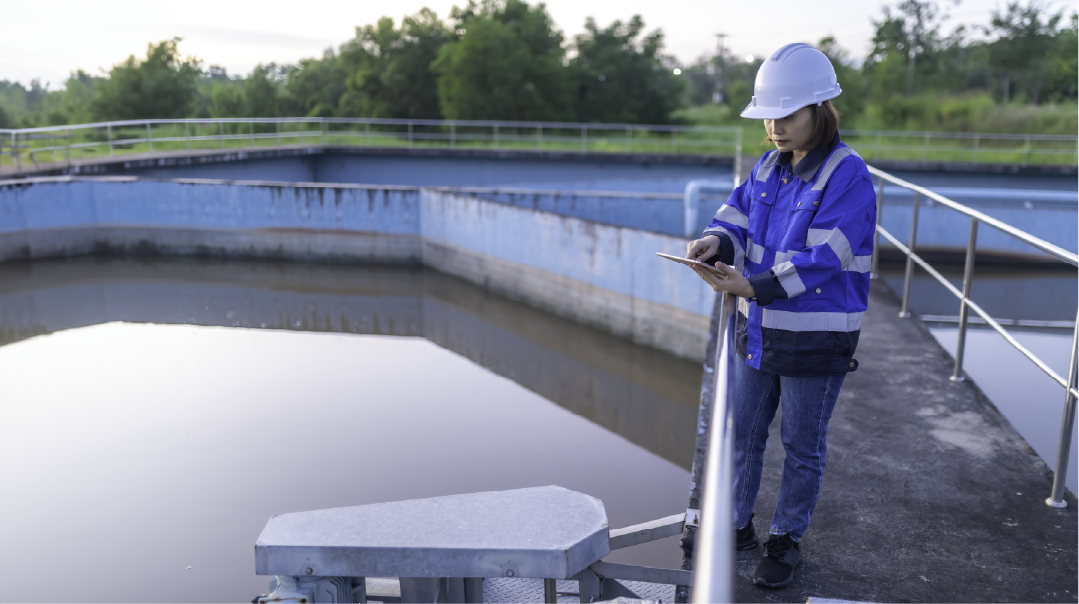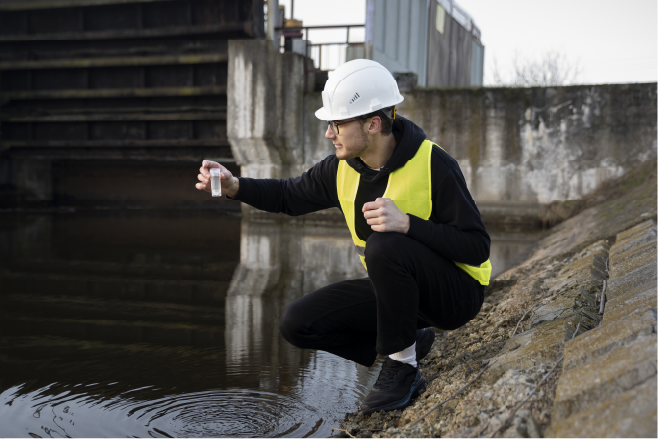Water Treatment Operator

Water Treatment Operator
Job Sector
Environment and Utilities
Potential Salary (USD)
Low End: $37,870.00 /yr
Avg/Med: $58,260.00 /yr
High End: $86,160.00 /yr
Education Required
- Certificate or Bachelor’s Degree
- Apprenticeship Training & Licence
Job Outlook
The demand for water treatment operators remains steady in the United States and Canada. Market demand is driven by the expansion of infrastructure, upgrades, and expansions to support population growth in urban areas.
Career Profile Overview
Water Treatment Operators manage and oversee the complex processes that purify water for public consumption. They operate and monitor specialized equipment, conduct tests on water samples, and make necessary adjustments to ensure the water meets stringent quality and safety standards. Their critical work safeguards public health by providing communities with clean, safe drinking water.



Key Responsibilities
Monitoring & Operating Systems
- Monitoring control systems, including chemical feed rates, disinfection systems, and filter functionality.
Testing Water Samples
- Collecting water samples at regular stages of the treatment process, testing for pH, turbidity, chlorine, and bacteria.
Analyzing Data
- Analyze trends in water treatment and optimize the treatment process from plant to plant.
Maintenance & Troubleshooting
- Conduct inspections and preventative maintenance on all parts of a water treatment plant.
Records & Safety
- Document water treatment activities, ensuring compliance with regulations and environmental policies.
Emergency Response
- Response to power failures, water quality, or equipment failures.
Educational Path
High School
- Courses in chemistry, biology, and mathematics are beneficial.
Postsecondary
- Certifications in environmental technology, engineering technology, and water resources are beneficial.
Certifications
- Drinking Water Certificate
- Wastewater Licence
Entry-Level
Drinking Water Operator-in-Training
- Water treatment and distribution of supply subsystems under supervision.
Wastewater Treatment Operator-in-Training
- Wastewater treatment or collection facilities under supervision.
Limited System Operator
- Monitoring small water systems like campgrounds under supervision.
Mid-Level
Water & Wastewater Operator
- Operating and maintaining water quality plants.
Process & Compliance Technician
- Testing water samples for drinking water quality and environmental regulations.
Senior-Level
Operations Supervisor
- Supervision and training of water plants for safe operations at a water treatment facility.
Process & Compliance Supervisor
- Following environmental compliance, health and safety requirements and water treatment processes within a region.
Skills and Qualities
Mechanical Repair
- Operating, repairing, and maintaining equipment.
Compliance & Reporting
- Ensuring water meets quality standards.
Chemical Handling
- Measure, mix, and transport treatment chemicals.
Problem Solving
- Troubleshooting equipment, responding to emergencies, and making process adjustments.
Analytical Skills
- Comfort conducting tests and water inspections to evaluate results.
Detail Oriented
- monitoring machinery, gauges, dials, and controls to ensure proper operation.
United States
California State University | California
- Program: Water Treatment Specialist Certificate
- Website: Water Programs
University of Florida TREEO | Florida
- Program: Wastewater Certified Professional Operator
- Website: University of Florida Training, Research and Education for Environmental Occupations
Utah State University | Utah
- Program: On-Site Wastewater Treatment Training
- Website: Utah Water Research Laboratory
Canada
Conestoga College | Ontario
- Program: Certificate in Water Treatment and Distribution System Operations
- Website: Conestoga Continuing Education
British Columbia Institute of Technology | British Columbia
- Program: Associate Certificate in the Fundamentals of Water and Wastewater Operations
- Website: BCIT Programs
Southern Alberta Institute of Technology | Alberta
- Program: Certificate in Water and Wastewater Treatment Operations
- Website: SAIT Programs
Annie Martel
Career Profile In Partnership with Connected North
The Future Pathways Fireside Chats feature Indigenous Role Models speaking about their careers and learning journeys.

Background
Annie is a Red River Métis from St. Pierre in Winnipeg.
At university, Annie majored in Environmental Studies, with a minor in Geography and Indigenous Environmental Science.
She has also worked in the Infrastructure and Resource Management Department for the Manitoba Métis Federation, where her role focused on water health.
Inspired by Climate
Growing up, Annie was inspired to pursue environmental studies after noticing the impact of the climate crisis in her community.
Since starting her studies, she has been inspired to connect what she has learned to her own community and traditional teachings.
Outside of class, Annie would ask her family about their relationship to the land and the waters, learning more about Métis environmental knowledges.
Connecting with Water
In her role at the Manitoba Métis Federation, Annie connected with elders, built community relationships, and conducted water testing.
She was excited to work on practical projects that tracked water health, sharing:
As Métis women, we have a very specific and kind of intimate relationship with the land, and specifically the water as well.
In her role, she also learned about waterways and the influence of climate change on water quality over time.
Advice to Young People
When considering moving away from home for education or a new job, Annie recommends leaning on support from home via phone and video calls. She shares how much she learned by going away to school, saying:
I loved the experience of being away. It made me realize how much my community means to me.
She also recommends finding community groups to join. For example, she found an Indigenous community group most helpful in connecting with fellow students in her area.
Source
Future Pathways: Annie Martel Fireside Chat



Resources and Further Reading
- Water Treatment Operator Job Outlook: US Bureau of Labour
- Water Treatment Operator Job Outlook: Government of Canada
